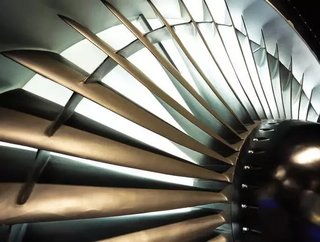Aerospace manufacturing takes off with digital technology

A number of deals were announced at the Paris Air Show in June 2017 which are expected to contribute £3.3 billion to the UK economy and £35 billion to the global economy.
This is positive news for the aerospace industry, with analysts forecasting growth of more than five percent over the next ten years.
Behind all these predictions, the aerospace industry has faced some difficulties in recent years resulting in cutbacks. These reductions have raised concerns over whether the support network behind the aerospace industry – including manufacturing – is in a position to fully embrace this upturn in demand.
Shortage of skills
One area that needs addressing to support growth in the sector, is the current shortage of skilled individuals seeking employment in the aerospace industry.
The skills issue has resulted from a shortage of qualified individuals coming through the education system while, at the same time, the average age of those who are in employment has increased dramatically. For aerospace, which was once considered to be a glamorous, high-profile, industry to work in, the industry has lost much of its kudos and therefore isn’t attracting employees as it used to.
A recent report found that three in five employers (59%) in the aerospace industry are concerned that a lack of skilled engineers could represent a threat to their business in coming years. The same report also revealed that a third of engineering roles (32%) are considered ‘hard to fill’; around twice the UK average. In addition, issues around recruitment were reported as having caused delays for almost half of engineering businesses (48.3%), increasing operating costs.
It’s likely that the effect of this current skills shortage will be felt for some time while issues relating to both producing qualified engineers, plus the retention of qualified individuals in manufacturing and engineering roles, are negated. By way of illustration, Engineering UK’s annual report suggests that 56,000 engineering technicians will be needed each year from now until 2024 in order just to keep up with demand.
Moving toward digitalisation
As many manufacturing environments enter the “fourth industrial revolution”, significant modernisation is taking place with businesses introducing a range of digital manufacturing processes.
While this move toward digitalisation has been flagged by some as a move that will attract students towards a career in engineering, it’s unlikely to provide the complete solution to the manpower challenges faced by the aerospace industry (and manufacturing in general). However, the increased demand for hardware and software engineers to operate new, advanced, digital processes may overcome the initial ‘attraction’ hurdle by bringing excitement back to the industry and help attract, and retain, talent in manufacturing.
Consider 3D printing, a particularly exciting technology that is continually evolving, even after three decades into its existence. 3D printing enables product developers across a range of industries to rapidly produce high-quality prototypes suitable for assembly tests and presentations.
More than just prototypes, 3D printing can be used to produce production-ready parts, though only a small number of companies have taken advantage of this method of production to date.
Like any industry, the requirements of different businesses within aerospace will vary greatly. In such cases, 3D printing can assist by enabling the production of single components through to production-ready parts. It also has the additional benefit of reducing the amount of administration involved in aerospace R&D, thereby increasing a manufacturer’s effectiveness and efficiency.
A change of mind-set
For the aerospace industry to achieve the growth predicted by analysts, improvements throughout the industry will be required. Aircraft engineers will need to focus on innovations that will allow for a greater level of customisation, improved longevity and increased cost reduction, all without having to compromise on safety or comfort.
In common with most other industries, aerospace manufacturing is being shaped by customer demand, with an increasing expectation for rapidly produced parts to be made available within a matter of days.
Advancements in rapid prototyping and on-demand production capabilities have changed the mind-set of product developers; enabling consumer customisation demands. The ability to cheaply and quickly deliver parts makes the development cycle significantly smoother, while the ability to physically hold production-quality parts faster than ever before has proven to be a significant benefit before and during certification and testing processes.
New manufacturing techniques and technologies are now being considered by many businesses within the aerospace industry as a means of meeting demands for greater efficiency and innovation while having to work within ever more restrictive budgets.
The latest developments in on-demand production capabilities, combined with a range of advanced manufacturing technologies will ultimately offer aerospace manufacturers the means of saving and time and money that they need to introduce new designs and advanced options for customers. Through adapting their traditional supply chain, and embracing the latest digital and prototyping services, the aerospace industry will have the capability to support the expansion predicted over the next ten years and beyond.
By Stephen Dyson, Head of Industry 4.0, Proto Labs






